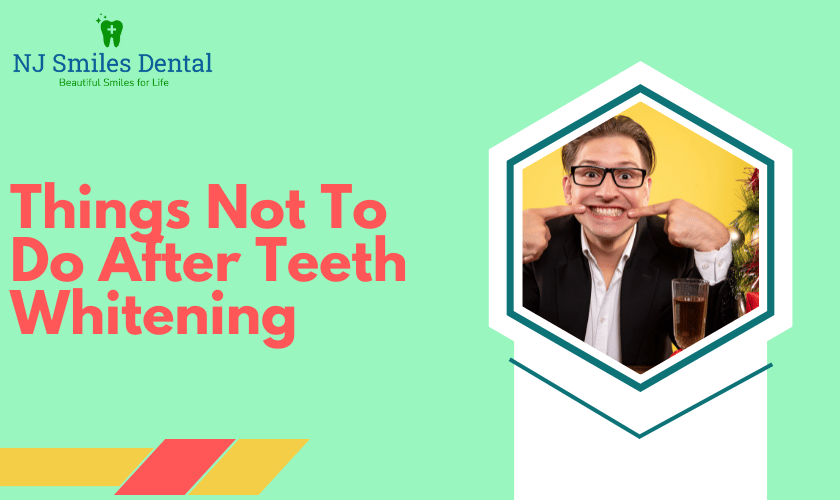
What Not To Do After Teeth Whitening This Christmas?
Christmas is just around the corner, and many of us want to brighten our smiles in time for the festivities. Teeth whitening is a great way to enhance your pearly whites. Still, there are some important dos and don’ts to keep in mind after you’ve undergone your cosmetic dentistry treatment. This blog will help you understand what not to do after teeth whitening this Christmas to ensure that your sparkling smile lasts for years to come.
Why Is It Important To Follow Post-Whitening Guidelines?
When it comes to cosmetic dentistry treatments, you must follow the proper post-treatment guidelines to get the best results – teeth whitening is no different. It’s essential that you listen carefully to your dentist’s advice after having your treatment, as well as follow any other instructions they give you. This will ensure that you get the best possible outcome from your whitening session and ensure it lasts for longer.
What Not To Do After Teeth Whitening This Christmas?
1. Avoid Certain Foods & Drinks
Certain foods and drinks can stain your teeth, so you must avoid them after having teeth whitening treatment this Christmas. These include coffee, tea, red wine, soy sauce, tomato sauces, and dark fruits like blueberries or blackberries. Also, be careful with acidic foods such as lemons or oranges – these can cause enamel erosion, leading to further staining of your teeth over time. Remember: if an item could stain a white t-shirt, it could also stain your teeth!
2. Don’t Smoke
Smoking cigarettes can be particularly damaging when combined with cosmetic dentistry treatment such as teeth whitening. Nicotine stains yellow over time, defeating the purpose of having a whiter smile in the first place! On top of that, smoking can also cause gum disease, which leads to tooth decay and discoloration – something nobody wants during the festive season!
3. Don’t Brush Too Hard
Brushing too hard can damage both natural tooth enamel and dental work, such as veneers or crowns, contributing to how white your smile looks overall. Try using a soft-bristled brush twice daily with gentle circular strokes instead – this will help maintain your newly whitened smile without causing any harm or damage along the way!
4. Avoid Bleaching Products & Overuse Of Whitening Products At Home
It might be tempting to continue at-home bleaching or use store-bought products once you have had a professional take care of things initially. However, this will only increase sensitivity issues and potentially cause more damage long-term, so it’s best avoided altogether! Instead, opt for products specifically designed for post-whitening maintenance, such as specialized toothpaste containing low abrasives – these are designed specifically with sensitive mouths in mind so they won’t aggravate any discomfort caused by over-bleaching at home.
5. Avoid Excessive Fluoride
Too much fluoride can cause discoloration of the teeth, something we want to avoid. Now that we have achieved beautiful white results from professional treatments! Try switching toothpaste without fluoride for a few months until sensitivity has decreased again. This should help protect against further staining and discoloration down the line while still providing enough protection against decay, etc., from regular brushing habits!
A: While some food items may not stain immediately after treatment, it is still recommended that you avoid certain foods listed above for up to 24 hours following treatment to maintain optimal results over time!
A: No smoking should be avoided immediately following treatment because nicotine stains yellow over time, defeating the purpose of having a whiter smile long-term! Additionally, smoking contributes to gum disease – another contributor to discoloration down the line!
A: You should brush twice daily with gentle circular motions using a soft-bristled brush (this helps prevent damaging natural enamel or dental work). Additionally, try opting for specialized pastes designed with sensitive mouths in mind (these contain low abrasives) when possible – this prevents further irritation from more traditional paste formulas used pre-treatment!





